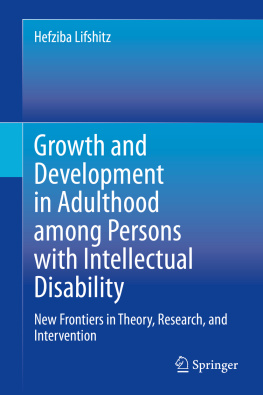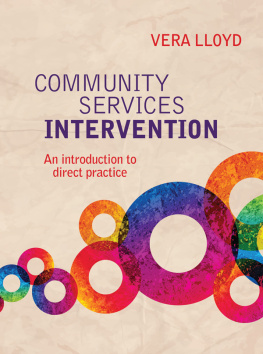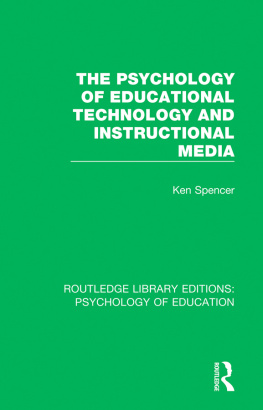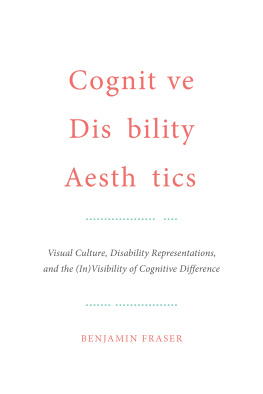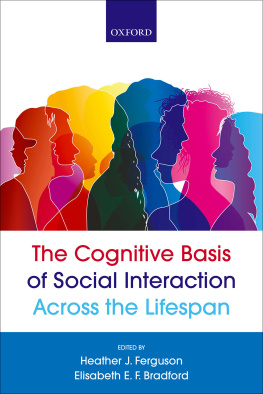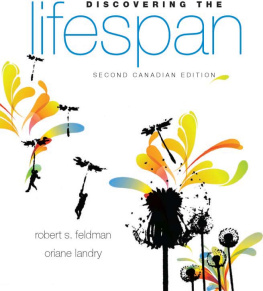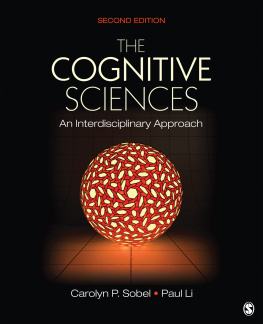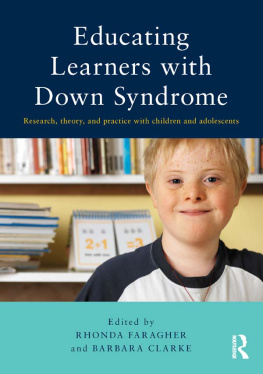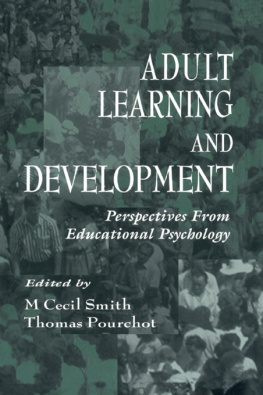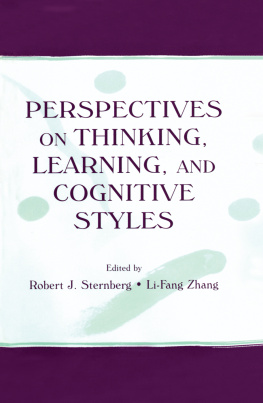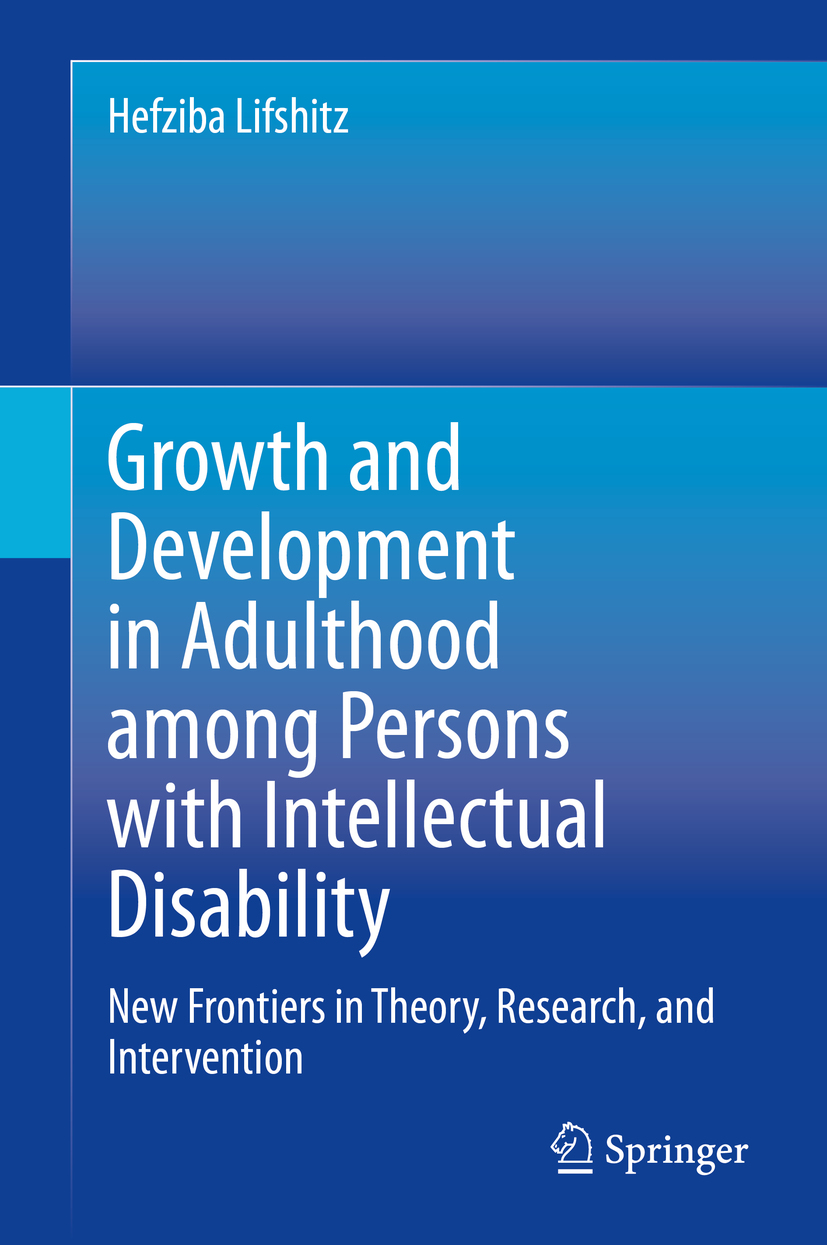Hefziba Lifshitz
Growth and Development in Adulthood among Persons with Intellectual Disability
New Frontiers in Theory, Research, and Intervention
Hefziba Lifshitz
Head of MA Program in Intellectual Disability, School of Education, Bar-Ilan University, Ramat Gan, Israel
ISBN 978-3-030-38351-0 e-ISBN 978-3-030-38352-7
https://doi.org/10.1007/978-3-030-38352-7
Springer Nature Switzerland AG 2020
This work is subject to copyright. All rights are reserved by the Publisher, whether the whole or part of the material is concerned, specifically the rights of translation, reprinting, reuse of illustrations, recitation, broadcasting, reproduction on microfilms or in any other physical way, and transmission or information storage and retrieval, electronic adaptation, computer software, or by similar or dissimilar methodology now known or hereafter developed.
The use of general descriptive names, registered names, trademarks, service marks, etc. in this publication does not imply, even in the absence of a specific statement, that such names are exempt from the relevant protective laws and regulations and therefore free for general use.
The publisher, the authors, and the editors are safe to assume that the advice and information in this book are believed to be true and accurate at the date of publication. Neither the publisher nor the authors or the editors give a warranty, expressed or implied, with respect to the material contained herein or for any errors or omissions that may have been made. The publisher remains neutral with regard to jurisdictional claims in published maps and institutional affiliations.
This Springer imprint is published by the registered company Springer Nature Switzerland AG.
The registered company address is: Gewerbestrasse 11, 6330 Cham, Switzerland
I dedicate this book to the blessed memory of my late parents and sister and in esteemed honor of my brother and niece who have all inspired me to continually learn and develop as a professional in my field, throughout my life:
To my late father, Rabbinical Judge Rabbi Ari Leib Lifshitz, of blessed memory, whose astounding recall was akin to a plastered cistern that does not lose a drop (Ethics of the Fathers, Chap.)
To my late mother, Rachel Lifshitz, of blessed memory, a rabbinical lawyer and renaissance woman of wisdom and spirit.
And to my late sister Etel, of blessed memory, an accomplished biblical scholar, head of the library at the Midrasha Institute for Women at Bar Ilan University, who with modesty, integrity, and benevolence devoted her life to those in need, including taking part in the Otzmot Empowerment Project as a chavruta teacher, all the while steadfastly supporting and cherishing me
And in honor of my capable, talented brother, Rabbinical Judge Rabbi Zvi Lifshitz, and my clever niece, talented lawyer Drora Lifshitz, who serves as legal adviser for the Israeli Ministry of Infrastructure who both have inspired me to publish the research and knowledge I have accumulated in the field of intellectual disability.
Preface
This research-based book is designed for academic scholars, students, and practitioners as well as parents, caregivers, and other key figures and service providers who work with individuals who have intellectual disability (ID) across the lifespan. Often, educational programs and empirical inquiry for populations with disabilities tend to concentrate their efforts on the crucial developmental periods of childhood and adolescence. The current book offers a new lifelong perspective on ID, focusing mainly on the adulthood period and advocating a broader and more holistic approach toward crucial change and growth processes occurring among persons with ID all along their adult years.
First, this book puts forth a new and optimistic theory about adulthood in ID and presents cumulative evidence to support it. Second, grounded in this theory, a holistic educational intervention model is delineated, which can be applied for adults with all severity levels and etiologies of ID, at various ages during adulthood, by different change agents in diverse settings.
At the heart of this books intervention model is a new conceptual approach thecompensation age theory(CAT) which proposes an optimistic view of the periods of adulthood and aging among individuals with ID. The CAT suggests that adulthood in populations with ID may be characterized by processes of cognitive development, growth, and neural sprouting, rather than of stagnation or even decline. These growth trajectories may appear not only in young adulthood and middle age, when adults are in their 20s, 30s, and 40s, but even at more advanced ages from 50 and up, which is a period more prone to decline and deterioration. The need is urgent for a new conceptual and practical approach toward persons with ID as they enter adulthood and as they face the challenges of the adult years, in light of demographic and social processes that families, public agencies, and societies face in the twenty-first century.
Demographically, the phenomenon of increased human life expectancy has implications not only for the general population but also for populations with disabilities. It is now common in most developed countries for persons with ID to live to old age. Even adults with Down syndrome, an ID etiology that was in the past associated with shorter longevity, are now sometimes living into their 70s and 80s. The longer lifespan of people with ID has presented researchers and care providers with a new challenge: to develop health services and occupational, educational, social, and leisure programs that go beyond childhood, adolescence, and young adulthood to meet the relatively unexplored needs and capabilities of this older adult population.
Socially, the developed countries of the world are continually striving to fulfill national and international policies that advocate social inclusion for persons with ID. As a case in point, the United Nations policy on the rights of individuals with disabilities in 2006 called not only for inclusive education systems but also for later lifelong learning that taps each persons human potential and full participation in society. Such policies are continually being implemented in countries like the United States, Canada, Australia, Ireland, and Israel, where adults with ID can now find opportunities to live in a community residence, become included in the open job market, benefit from freedom to make life choices, participate in government elections, and have the possibility to participate in postsecondary education programs at universities and colleges.
On the other hand, in many places around the world, there is dissonance between desired inclusion policies and the reality on the ground, such that many individuals with ID remain socially excluded to some extent or another. When governments, institutions, and labor markets continue to emphasize competitiveness and economic growth rather than focusing on maximizing the personal potential of such individuals with ID, then the latter often continue to face inadequate opportunities for gainful employment and limited autonomy to make life decisions such as voting or marrying. Even in developed countries, as they complete their schooling and begin young adulthood, many or even most persons with ID enter vocational or rehabilitation centers, where they spend most of their adult lives. Far fewer enter the open market. Relatively rarely do they encounter explicit cognitively stimulating education or the chance to participate in postsecondary education programs. As will be described in this book, such practices have been defined as discriminatory and have been attributed to traditional stereotypes describing adults with ID as people who will never grow up or age successfully or be ready to compete as fully participating adults in a market-driven economy.

